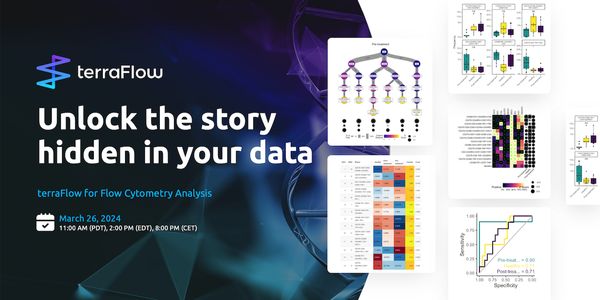MAR 26, 2024 | 7:00 PM
C.E. CREDITS
The implementation of a preemptive pharmacogenomics (PGx) program in a hospital setting requires a multidisciplinary approach to ensure seamless integration of each stage of the process for...
MAR 26, 2024 | 11:00 AM
Ever wonder what you’re missing in your data? The sheer complexity of today’s flow and mass cytometry datasets demands automated solutions. Machine learning plugins only provide...
MAR 26, 2024 | 8:00 AM
C.E. CREDITS
The implementation of a preemptive pharmacogenomics (PGx) program in a hospital setting requires a multidisciplinary approach to ensure seamless integration of each stage of the process for...
The practice of diagnostic pathology has gone through a disruptive transformation in which multiple tools such as digital imaging, advanced artificial intelligence algorithms, and computer-a...
MAR 12, 2024 | 10:00 AM
In this webinar, we will briefly introduce Vizgen’s Vizgen® MERSCOPE® Platform for spatial transcriptomics. Following this introduction, we will showcase the capabilities of ME...
MAR 12, 2024 | 10:00 AM
Inflammation is associated with cognitive decline and the pathogenesis of Alzheimer's disease, although exact pathways remain elusive. To further explore the role of inflammation, we uti...
Explore how proficiency testing helps labs ensure accuracy, meet regulations, and identify testing issues to improve performance...






















